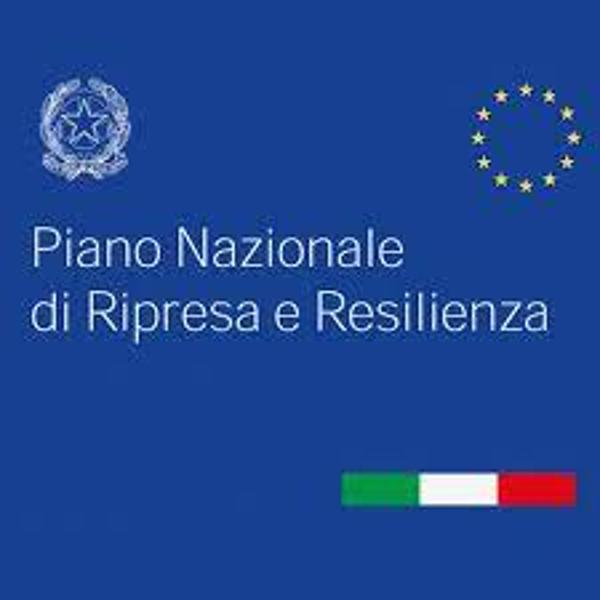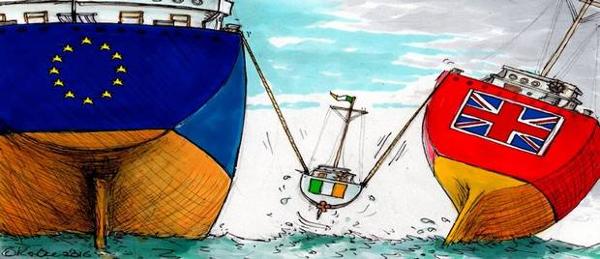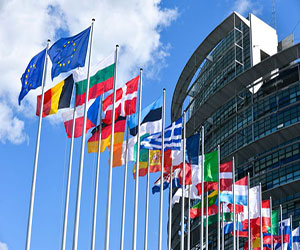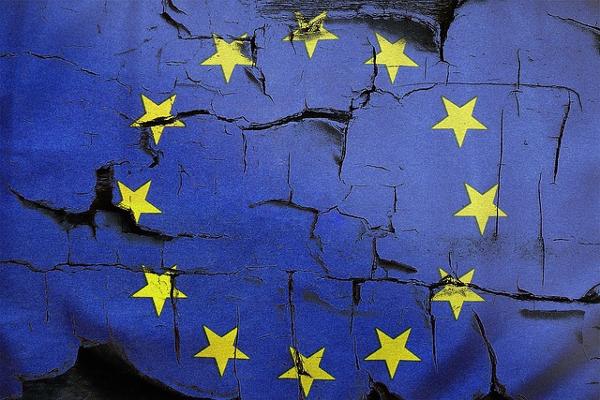The Commission’s decision to open an infringement procedure against Germany for the breach of EU law inherent in the Weiss judgment of its Federal Constitutional Court (FCC) has been widely praised in many academics circles. Enthusiasts of the initiative regard it as an appropriate way to reaffirm the supremacy of EU law and assuage the concerns for that judgment’s corrosive impact on the authority of the Court of Justice of the European Union (CJEU). Yet, in many respects this step seems misguided and largely inadequate to cope with the challenges posed by that ruling. In what follows we argue that the infringement procedure is an ill-conceived attempt to attain what in the current EU institutional framework is unattainable: the affirmation of European law as the ultimate gatekeeper of legal validity in Europe. What is more, by adding another round to the unproductive struggle for ultimate authority between the EU and its member states on the delimitation of the scope of EU law, the Commission leaves unaddressed the most pressing issue emerging from the Weiss saga: the need to secure a more robust legal basis to the unconventional monetary policy of the European Central Bank (ECB).
To understand our skepticism, it is important to recall that the authority and primacy of EU law is only one – admittedly the most spectacular – layer of the FCC’s Weiss judgment. The Karlsruhe court displayed not only its pretension to retain the last word on EU issues when fundamental principles of the German Basic Law are at stake but, more controversially, also the ambition to provide unilateral interpretations of EU competences when the Court of Justice fails to discharge appropriately its tasks. The judgment’s two other layers are crucial to understand the constitutional stakes: first, the scope of EU monetary policy and its impact on national economic policy, and, second, the interpretation of Article 123 TFEU, concerning the prohibition for the ECB to finance the budget of the Member States. While the two courts disagreed on the former (in particular, on how proportionality works in this regard), on the latter both the CJEU and the FCC found that such prohibition does not prevent purchases of sovereign bonds by the ECB as long as crucial safeguards (purchase in the secondary market, black-out period, respect of capital key, temporary holding of the bonds, limits of the volume of the purchases, eligibility criteria) are respected.
In the aftermath of the ruling, the German government, the Bundestag and the FCC were busy coping with the scope of monetary policy and respect of the principle of proportionality. Indeed, after the ECB Governing Council confirmed the proportionality of PSPP in response to the FCC, both the German government and the Bundestag declared that the ECB decision satisfied the requirements spelled out in the FCC’s Weiss ruling. A deferential order of the FCC of April 29 further buttressed the same conclusion. Arguably, the breach of EU law was thus rectified by all the institutions involved. Yet, the infringement procedure is a response to the first layer of Weiss, that is, the part in which unabashedly the FCC called into question the primacy of EU law and the authority of the CJEU.
Necessity is the main argument invoked in favor of the Commission’s decision. The gravity of the breach at stake, it is said, gave it no other choice, conditioning de facto the full discretionary power that the Treaty and the Court have granted it in the past 60 years. Lack of action of the Commission could open the door to similar positions by other high courts, at the risk of leading to the demise of EU law, stripped of its ultimate authority. The danger, it is added, comes especially from Hungary and Poland. Indeed, the risk of contagion inherent in Weiss was the argument invoked by one of the Members of the European Parliament that fought for this outcome. It is also reflected in the Commission’s statement. In the current political circumstances, the Commission wished to signal that it gives Germany no privileged treatment when it comes to breaches of EU law, all the more if the initiative is viewed in the context of other infringement proceedings targeting breaches of the rule of law by Hungary and Poland, though outside of any primacy issues. Both arguments confirm the symbolic nature of this action, used strategically by the Commission, and as such coherent with how it has shaped the role of infringement procedures in EU law. Legally, no infringement must be pursued, even in the cases where an infringement case can be built. When Member States’ courts declare EU law ultra vires, whether in cases where at stake is the interpretation of domestic law in the light of EU law (Holubec and Ajos), or in cases that involve actions of the EU institutions (Weiss), no infringement is legally due. All depends on the Commission’s strategy.
As much as it has been questioned whether Weiss was the right judgment to apply the ultra vires doctrine, there are good reasons to question also whether Weiss was the right instance for the Commission to open for the first time an infringement procedure for a breach of EU law by a Member State because of a breach by its constitutional court (even if that is in line with previous cases involving high courts, where the CJEU confirmed their duty to refer questions under Article 267 TFEU). Even assuming that a violation of EU law by Germany still persists, what can an infringement action by the Commission realistically achieve? Most likely, a rather innocuous declaration from the German government acknowledging the primacy of EU law, as established by the FCC. But if the goal of the Commission is to obtain a full surrender, that is, the recognition of the unconditional supremacy of EU law, we believe that this is something that the German government cannot deliver. Simply put: the German government is a creature of the German Basic Law and, as such, its participation to EU affairs remains subject to the latter norms as interpreted by the FCC. More generally, one need not subscribe to any sort of constitutional pluralism to claim that, in the current EU institutional framework, the contradiction between the primacy of EU law and the supremacy national constitutions cannot be resolved, certainly not by unilateral declarations on who has the last word to define the inevitable blurred boundaries of the scope of EU law. We are discarding the scenario that the Commission’s decision could be meant to put pressure on the FCC, which is facing challenges on the constitutionality of the Next Generation EU and of the ECB’s Pandemic Programme (PEPP). Such a move would put the Commission in the position of an executive body pressuring a constitutional court, which would not only be constitutionally inadmissible but also a dangerous signal to give to national governments.
For these reasons, it is easy to predict that, once the German government will reaffirm its commitment to the primacy of EU law, the Commission will settle the case in the same unspectacular way as in the majority of infringement cases decided, at closed doors, at the administrative stage. Were that not to be the case, the infringement will move on to its judicial phase before the CJEU. It is hard to not overlook the difficulties of this second scenario. How can the CJEU be a judge in its own cause? And what could be realistically achieved if not the repetition of the terse statement that the CJEU put forward in a press release following the FCC ruling? It is noteworthy that, as much as every national institution or body must take necessary measures to remedy a failure to comply with EU law, the CJEU does not have the competence to order a specific remedial action. Hence, the Commission cannot ask the Court “to require a Member State to adopt a particular conduct in order to comply with EU law”.
In the meanwhile, the legal fight on the grounds of proportionality and primacy is sweeping the fundamental problem under the carpet: the possibility for the ECB to continue its unconventional monetary policy at a time in which that is badly needed, and the accountability of the ECB in operating with these instruments. As said, the prohibition of monetary finance is one of the crucial layers of Weiss. It places clear constraints to the purchases of sovereign bonds by the ECB. The spectacular character of the judicial clash overshadowed the Courts’ agreement on this point. However, since the start of the pandemic, the ECB has acted with the PEPP programme in disregard of the crucial safeguards that both the CJEU and the FCC consider necessary to prevent the circumvention of the article 123 TFEU prohibition. It is no surprise that the PEPP has already been challenged before the FCC. Admittedly, in the past both the CJEU and FCC have shown that their argumentative resources in buttressing EU fudges are apparently inexhaustible. The fact remains that large part of the ECB initiatives shoring up EMU are built on precarious legal terrain which, sooner or later, will require serious reconsideration.
Since the Weiss ruling by the FCC we have been arguing with other colleagues that the Weiss ruling offers an opportunity to rethink the EMU legal infrastructure, notably the remit of monetary policy and the accountability of the ECB. There are signs that on a number of issues, ranging from Next Generation EU to the reform of the Stability and Growth Pact, European institutions are open to experiment with policies different from those implemented during the previous economic and financial crisis. At a time in which the ECB is committed to a thorough Strategic Review of its activity, it is quite frustrating to see the European Commission wasting precious time in mis-guided initiatives rather than in ambitious projects of constitutional transformation.



























